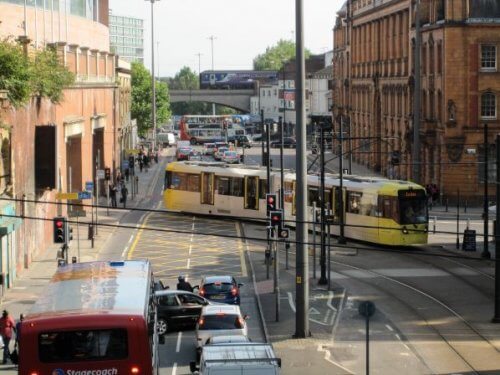Transport for Greater Manchester recently conducted a trial of traffic signalling technology, in an effort to increase punctuality.
SCOOT (Split Cycle Offset Optimisation Technique) technology was used, which analyses real-time traffic data to optimise and co-ordinate traffic signal timings.
The system was used to prioritise the journeys of Greater Manchester’s busiest bus service, the 192, at 14 sets of traffic lights along the busy route between Stockport and Manchester.
The SCOOT system uses transmitters found on most modern buses to identify the vehicle, which would extend the green time as it approaches lights.

This would enable late running buses to pass the junction without needing to stop.
The trial’s results showed that 11.8% of all the messages received granted priority to buses behind schedule, with an average of 31 seconds saved per junction. On morning and evening peaks, 8.2 and 12.9 messages resulted in priority with 11.5 over the weekend.
With bus reliability being one of the main factors influencing patronage, this new technology could be potentially transformative for the industry, with congestion costing Greater Manchester around £1.3bn each year in lost time.
Alison Chew, Head of Bus Services at TfGM, said: “The A6 bus priority trial was extremely positive and could see us permanently extend the use of this technology across more of the region’s busiest routes.
“Tackling congestion and improving air quality are two priorities for us at the minute and clearly measures that improve the reliability of public transport is one way of encouraging more people to leave the car at home.
“While it’s early days, the results that we’ve seen from this initial pilot suggest that if bus priority schemes were increased, services would be more punctual, encouraging more users to use buses and helping to contribute to reduced congestion across the region. Therefore, benefitting not only bus users but other road users and pedestrians as well.”
Read more news here: cbwmagazine.com/category/news

